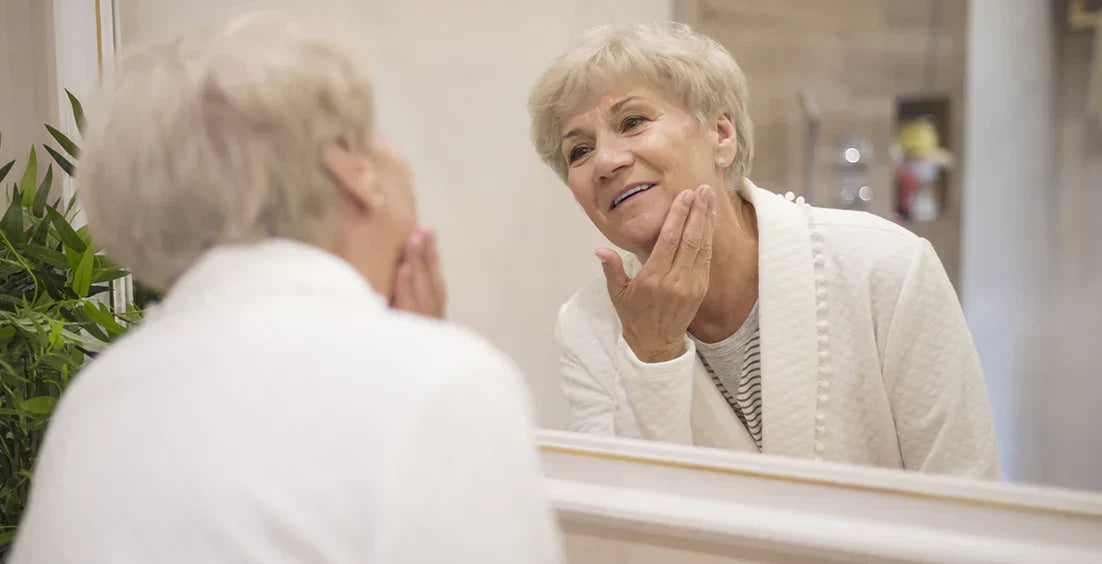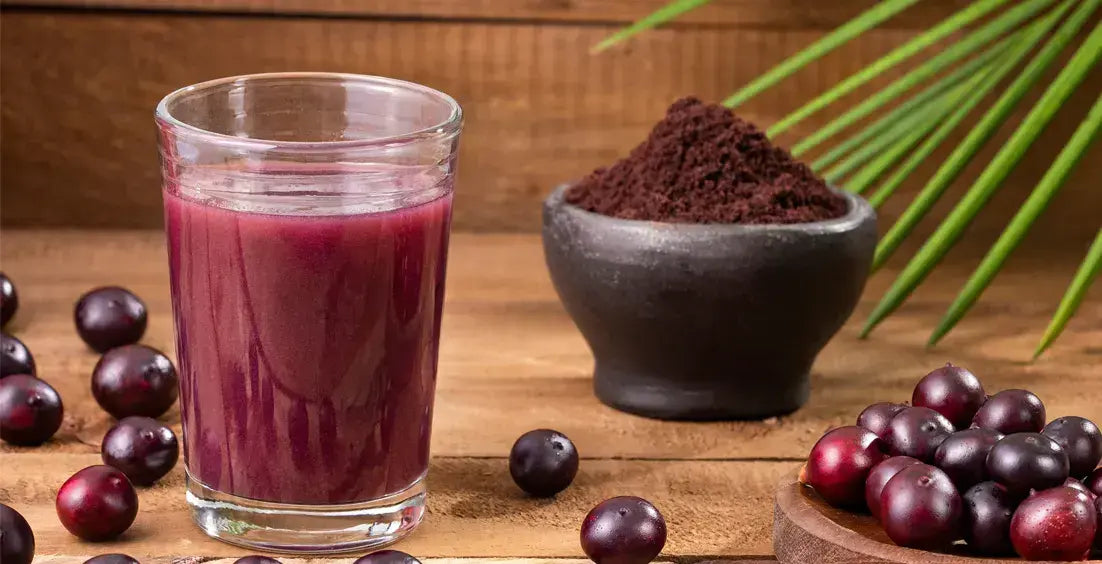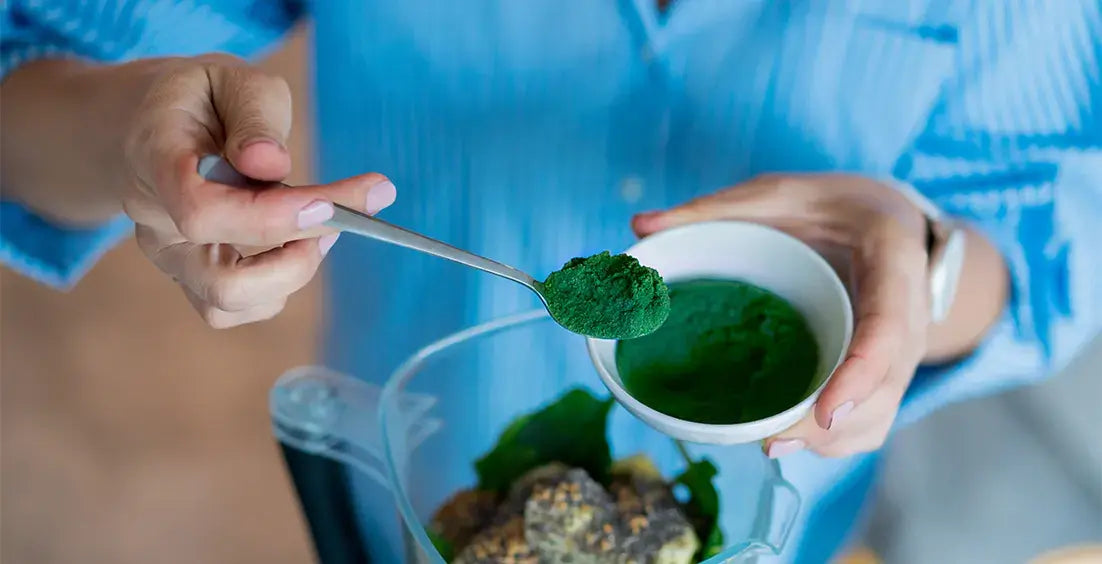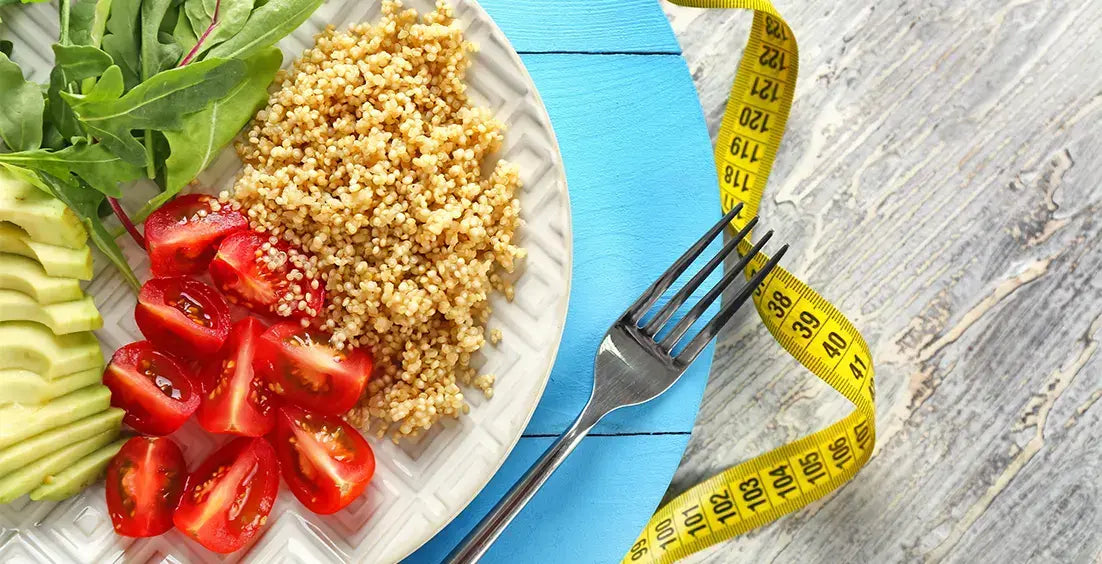The Role of Resveratrol in Anti-Aging
Does resveratrol help with anti-aging? Read on to learn about resveratrol, its benefits, side effects, and dietary sources.

Table of contents
Taking care of your skin is practically a part-time job for health-minded individuals. Keeping up with all the latest trends and scientific findings can be downright overwhelming.
That’s why we have composed today’s article. Today we will be talking about resveratrol - an antioxidant that you have probably heard about if you are into skincare. In the following article, we will help dispel some of the myths that surround resveratrol, tell you how it might actually work, and give you tips on how to use it.
Key Takeaways
- Resveratrol is an antioxidant known as a polyphenol that is naturally found in the skin of berries, grapes, and nuts
- Resveratrol may combat oxidative stress in the skin, slow cellular aging, and have repairing effects on the skin
- There are other important health benefits of resveratrol including heart and brain health
- You can get more resveratrol in your diet by taking quality supplements and eating more resveratrol-rich foods
What is Resveratrol?
Resveratrol is a natural compound that is found in various fruits, nuts, and even cacao. It belongs to a group of antioxidants known as polyphenols. Resveratrol has been observed to act as an antioxidant.
This means that it has been known to protect the organs against the effects of free radical cells that can cause oxidative stress. Oxidative stress can lead to premature signs of skin aging, cell damage, and hinder the functions of your organs.
This is why resveratrol and other antioxidants have been considered important for skincare and general health. As a natural substance, it can be found in produce such as grapes, blueberries, raspberries, cranberries, pistachios, peanuts, cacao, dark chocolate, and more.
When it comes to skin aging and care, resveratrol’s primary role as an antioxidant is to stymie the effects of free radical cells. Free radical cells can damage healthy cells all over the body including skin cells. This is what is partially to blame for premature skin aging.
Does resveratrol work for anti-aging?: The Science Behind It
So does resveratrol work for anti-aging effects? There has been some pretty good science backing the claims that it does. For instance, oxidative stress is one of the leading causes of skin damage in humans.
In a study conducted by the National Institutes of Health, it was found that “Recent trial studies have found that resveratrol supplementation beneficially reduces oxidative stress marker.” So resveratrol could potentially slow oxidative skin aging.
Resveratrol anti aging effects could also have an impact on cellular aging. Another NIH study suggested that resveratrol supplementation slows down cellular aging in skin and has a protective effect on skin cells.
Some studies have even found that resveratrol may play a part in repairing damaged DNA and mitigating future DNA damage. In these studies, it was observed that resveratrol had a protective effect on DNA against radiation exposure of various types.
So is resveratrol anti-aging? So far the scientific evidence suggests that it can have effects on skin cells that slow overall aging and protect from cellular damage.
The Health Benefits of Resveratrol
In the following section, we will discuss all the known health benefits of resveratrol supplementation:
Skin Health
Resveratrol may work to restore skin elasticity, making the skin firmer and improving overall resilience. One study suggested that “Several other signs of aging have been described to be improved by resveratrol, by increasing epidermal hydration, skin elasticity and skin thickness.” Resveratrol may also be useful for preventing cell degradation that can cause wrinkles and fine lines.
Heart Health
Several studies have found that resveratrol may protect against ventricular remodeling which can lower the risk of heart disease. Eating a diet of resveratrol-rich foods may also be able to lower cholesterol levels and improve circulation. This antioxidant may also be able to increase nitric oxide in the blood - a key vasodilator that affects blood pressure and circulation.
Brain Health
Resveratrol has also been observed to have neuroprotective effects. This means it may be able to slow the neuron degradation that leads to age-related cognitive decline.
The Science Behind Resveratrol Supplements
There are different forms of resveratrol available in supplement form. The first is trans resveratrol. Trans resveratrol anti aging effects tend to be more noticeable because this is considered to be the more bioactive form of resveratrol - meaning it may be more effective overall.
The other type of resveratrol is known as cis-resveratrol. Cis-resveratrol is thought to be less bioactive and therefore not quite as effective for anti-aging effects.
So how do you choose the best anti aging supplements with resveratrol? The first thing you should look for is a company that offers a good return policy as resveratrol products are likely to affect everyone differently.
Then, check the reviews of the supplement. Does it have plenty of reviews from different kinds of users who used the product for different purposes? If not, then consider another supplement.
You also have to look at the dosage. For anti-aging effects, it’s best to look for a supplement that delivers at least 150 mg of resveratrol. The resveratrol anti aging dosage will play a huge part in how effective any supplement might be.
Next, you may want to consider other types of resveratrol skin products. Resveratrol anti aging cream may be more effective than a supplement as some people believe that topical resveratrol is more beneficial than taking it as a supplement.
Then there are potential side effects. Whether you choose resveratrol anti aging supplements or a resveratrol anti aging serum, you should be aware of the potential side effects which can include:
- Nausea
- Vomiting
- Gastrointestinal disruption
- Increased risk of excessive bleeding (for people on blood thinners)
- Liver complications
Be aware that resveratrol is considered generally safe for topical use and consumption and that the aforementioned side effects typically become an issue only at high dosages - 2.5 grams a day or more.
Dietary Sources of Resveratrol Into Your Diet
If you want to reap the potential resveratrol skin benefits but aren’t keen on taking a supplement, there are ways you can get more resveratrol in your diet naturally.
Jordan Anthony, MS RDN
Jordan Anthony, MS RDN, emphasizes that Resveratrol is a powerful antioxidant, meaning it will help to reduce inflammation and cancer risk throughout your body. It's safe to take up to 2.5 grams per day, and you can get positive benefits from doses as low as 150 mg per day.
For instance, you can easily get more resveratrol-rich berries into your diet by adding blueberries and raspberries to a refreshing summer salad. Keep peanuts stocked in your pantry to eat as a snack in between meals to boost your resveratrol intake.
Yes, red wine is also an abundant source of resveratrol; but keep your intake moderate. Don’t drink more than a glass of red wine per day to experience the anti-aging effects of resveratrol without over-consuming.
For dessert, try replacing your ice cream, cookies, and pies with recipes that include cacao and dark chocolate.
Most importantly, find recipes and diet regimens that are sustainable. You can easily eat more foods that are rich in resveratrol, but the key is to eat them consistently.
READ MORE - Can You Take Resveratrol and Collagen Together?
Conclusion
The great thing about resveratrol is that it has benefits that go far beyond your appearance. Yes, it protects skin cells from premature aging, free radical damage, and even UV ray exposure.
But it can also improve your cardiovascular health and protect you against the common issues related to cognitive decline. Just be mindful of how much resveratrol you are getting in your diet or through your supplements.
Also, speak to a doctor or dermatologist for more insights and personalized guidelines for incorporating more resveratrol into your diet. That will be the best way to implement resveratrol effectively for its potential anti-aging benefits.
About WOWMD Staff
The WOWMD Staff category features a diverse team of writers, each bringing specialized knowledge in areas such as nutrition, fitness, wellness, and more. Articles in this category benefit from insights provided by multiple experts. All content is peer-reviewed and regularly updated to ensure compliance with our editorial standards.
References
- The Effects of Resveratrol on Oxidative Stress Markers: A Systematic Review and Meta-Analysis of Randomized Clinical Trials https://pubmed.ncbi.nlm.nih.gov/31738139/
- Mechanisms of Aging and the Preventive Effects of Resveratrol on Age-Related Diseases https://pmc.ncbi.nlm.nih.gov/articles/PMC7587336/
- Protection and Mitigation by Resveratrol of DNA Damage Induced in Irradiated Human Lymphocytes In Vitro https://pubmed.ncbi.nlm.nih.gov/34724059/
- Skin Anti-Aging Benefits of a 2% Resveratrol Emulsion https://www.scirp.org/journal/paperinformation?paperid=109968
- Contributions of Common Foods to Resveratrol Intake in the Chinese Diet https://pmc.ncbi.nlm.nih.gov/articles/PMC11049234/
Evidence Based Research
This WOWMD content has been reviewed, as well as checked for facts, so as to guarantee the best possible accuracy.
We follow a strict editorial policy, especially related to the sources we use. Our articles are resourced from reputable online pages, with research drawn from academic institutions and peer-reviewed studies. You can click on the numbers in the parentheses (1, 2, etc.) and check out those references.
The feedback form on this page can be used to report content that is not accurate, up-to-date or questionable in any manner.
We do NOT intend for the information presented through our articles to replace the medical relationship with a qualified physician, nor does it represent specialized advice.


 Skin Detoxification Bundle
Skin Detoxification Bundle Complete Weight Loss Bundle
Complete Weight Loss Bundle Heart Care Bundle
Heart Care Bundle Better Immunity Bundle
Better Immunity Bundle  Men's Immunity & Prostate Health Bundle
Men's Immunity & Prostate Health Bundle Stress + Energy + Wellness Combo
Stress + Energy + Wellness Combo  Energy Booster Combo
Energy Booster Combo Natural Skin Care Bundle
Natural Skin Care Bundle Workout Supplements Combo
Workout Supplements Combo Cognitive Health & Vision Combo
Cognitive Health & Vision Combo Joint Health Support Combo
Joint Health Support Combo

















 By WOWMD Staff
By WOWMD Staff
